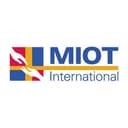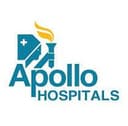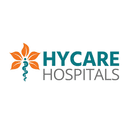Bachelor of Pharmacy (BPharm)
OR
Prepared by Docthub Courses Team ∣
Last updated on 18 Jul 2024
Overview
B. Pharm or B. Pharmacy is a four-year undergraduate degree for those interested in a career in Pharmacy. The full form of B. Pharma is Bachelor in Pharmacy. It plays a crucial role in researching and testing new treatments for diseases, making it a vital part of the healthcare industry.
B. Pharmacy practitioners are responsible for developing, manufacturing, and supplying medicines in the market. They also work on researching and developing pain drugs and adjusting medicines to treat the medical complications. Additionally, they ensure that medicines meet the quality standards set by the Pharmacy Council of India (PCI).
Overall, B. Pharma is an important field that contributes to the healthcare industry’s success by helping to find cures for diseases and ensuring that medicines are safe and effective.

Table of Content
What is B. Pharma?
B. Pharma or Bachelor of Pharmacy mainly concentrates on creating and producing medicines, distributing them, and studying the pharmaceutical field. Students learn about essential subjects like Biochemistry, Human Anatomy and Physiology, and Computer Applications in Pharmacy.
This program plays an important role in keeping well-educated individuals in the healthcare industry. Highly qualified pharmacists not only provide medical advice and management but also educate the public about crucial pharmaceutical needs.
B. Pharma Course Highlight
| Course Name | Bachelor of Pharmacy |
| Commonly known as | B. Pharma/ B. Pharmacy course |
| Course Level | Undergraduate |
| Course type | Degree program |
| Course duration | 4-year course |
| Minimum qualification | 10+2 Science with PCMB (Physics, Chemistry, Math, Biology) |
B. Pharmacy Eligibility Criteria
Here are the combined and simplified eligibility criteria for B. Pharmacy courses:
- Students must have passed their 10+2 or Class 12 board exams with a minimum of 50% aggregate marks from a recognized board.
- Students should have studied PCMB (Physics, Chemistry, Mathematics? Biology) in Class 12 or have passed their qualifying exams with Chemistry, Biology, and Mathematics.
- Admission is based on both entrance exams and merit lists, depending on the colleges to which students apply.
B. Pharmacy Course Duration
The Bachelor of Pharmacy (B. Pharmacy) course is typically 4-years long undergraduate degree program. This duration includes both theoretical and practical coursework, as well as internships or practical training programs.
B. Pharmacy Fees
The fees for a Bachelor of Pharmacy (B. Pharma) course can range from approximately 3,000 INR to 4 Lakh INR, depending on the institution and location of the college.
Who should do B. Pharm?
For students who are interested in working with people and providing them with the best advice and medication, pursuing a Bachelor of Pharmacy (B. Pharm) degree may be a great fit for you.
As a pharmacist, you will have the opportunity to interact with individuals from various backgrounds and must be an active listener with empathy.
Additionally, you will need to have a strong understanding of medical science to work as a research scientist, pharmacologist, medical science association, or toxicologist, among other roles in the field.
B. Pharma Entrance Exam
Students interested in pursuing a Bachelor of Pharmacy (B. Pharma) program must appear for eligible entrance exams and score qualifying marks to enroll in Pharmacy Colleges/ Institutes.
Admission to B. Pharmacy courses is based on a student’s performance in several entrance exams administered by various colleges in India. The cut-off scores for B. Pharmacy entrance exams vary across different colleges.
Here is a list of Pharmacy entrance exams in India for the Bachelor’s degree program.
| State | Exam | Authority |
| Gujarat | GUJCET | The Admission Committee for Professional Courses (ACPC) |
| Maharashtra | MahaCET | Directorate of Technical Education. Maharashtra state |
| Rajasthan | RUHS UG | Rajasthan University of Health Sciences (RUHS) |
| Karnataka | KCET | Karnataka Examination Authority (KEA) |
| Tamil Nadu | TNEA | Tamil Nadu Engineering Admission (TNEA) |
| Kerala | CEE | Commissioner for Entrance Examinations (CEE), Govt. of Kerala |
| Andhra Pradesh | AP EAMCET | Andhra Pradesh State Council of Higher Education |
| Telangana | TSEAMCET | Telangana State Council of Higher Education (TSCHE) |
| West Bengal | WBJEE | West Bengal Joint Entrance Examination Board |
| Madhya Pradesh | MPDTE | Directorate of Technical Education (DTE) |
| Uttar Pradesh | UPSEE | Uttar Pradesh State Entrance Examination (UPSEE); conducted by Central Admission Board under Dr. A. P. J. Abdual Kalam Technical University, Lucknow |
| Bihar | BCECEB | Bihar Combined Entrance Competitive Examination Board (BCECEB) |
| Punjab | Admission based on Merit | Baba Farid University of health Sciences, Faridkot |
| Haryana | HSTES | Haryana State Technical Education Society |
| Himachal Pradesh | HPCET | Himachal Pradesh Technical University (HPTU) |
Why pursue B. Pharmacy?
B. Pharm is a great course option for students who have completed their Higher Secondary Examination and are interested in learning about drugs, their formulation, and their effects on the body. It is a growing field, especially since the Pharma industry is expanding rapidly.
There are many reasons why pursuing a B. Pharm degree is a good idea.
Students will learn about the principles involved in dissolving drugs and creating new formulations. This knowledge can be used to make better drugs for various diseases.
Having a B. Pharm degree can lead to many job opportunities, including government jobs and working in hospitals.
The pharmaceutical industry is a significant contributor to India’s economy, with the country being the largest producer of pharmaceuticals in the world. The domestic pharmaceutical market is expected to grow significantly in the coming years, providing even more job opportunities for those with a B. Pharm degree.
B. Pharm Admission Process
Here’s an admission process for B. Pharm:
- Qualifying Exam: Students interested in pursuing a B. Pharm degree must have completed their 10+2 or equivalent examination with a minimum of 50% aggregate marks in subjects like Physics, Chemistry, and Biology/Mathematics.
- Entrance Exam: Several colleges and universities administer an entrance exam for B. Pharm admissions. Students can take either the national level B. Pharm entrance exam i.e., NEET (National Eligibility cum Entrance Test) or state-level admission exams like TS EAMCET, AP EAMCET, BCECE, and WBJEE.
- Merit List: In some colleges and universities, admissions are based on the applicants’ qualifying exam scores, and a merit list is prepared for it.
- Common Application Form: Students can fill out the common application form for the institutes in which they are seeking admission.
- Counselling Process: Students meeting the valid scores for the entrance exam or qualifying exam get to appear for the counseling process.
- Seat Allotment: Students can get a seat as per the cutoff of the particular category of students. Admissions are granted based on the student’s entrance exam scores or merit list.
- State-wise Admission: Every state has the same admission requirement for a B. Pharm degree, and admission is decided using both the merit list and the entrance exam.
B.Pharm course Syllabus
Here are some of the main subjects that are covered in the B. Pharm course:
| Semester 1 | Semester 2 |
| Human Anatomy and Physiology | Human Anatomy and Physiology- II |
| Pharmaceutics | Biochemistry |
| Pharmaceutical Inorganic Chemistry | Computer Applications in Pharmacy |
| Communication Skills | Pathophysiology |
| Remedial Biology/ Mathematics | Environmental Science |
| Semester 3 | Semester 4 |
| Pharmaceutical Engineering | Pharmaceutical Organic Chemistry-IV |
| Microbiology | Pharmacognosy and Phytochemistry-I |
| Pharmaceutical Organic Chemistry- III | Physical Pharmacy-II |
| Physical Pharmacy | Pharmacology |
| - | Medicinal Chemistry |
| Semester 5 | Semester 6 |
| Medicinal Chemistry-II | Medicinal Chemistry-III |
| Industrial Pharmacy-I | Pharmacology-III |
| Pharmacology-II | Herbal Drug Technology |
| Pharmacognosy and Phytochemistry-II | Biopharmaceutics and Pharmacokinetics |
| Pharmaceutical Jurisprudence | Quality Assurance |
| Semester 7 | Semester 8 |
| Instrumental Method of Analysis | Biostatistics and Research Methodology |
| Industrial Pharmacy-II | Social and Preventive Pharmacy |
| Pharmacy Practice | Pharma Marketing Management |
| Novel Drug Delivery System | Pharmaceutical Regulatory Sciences |
| - | Pharmacovigilance |
| - | Computer-Aided Drug Design |
| - | Cosmetic Science |
Top B. Pharmacy Colleges
B. Pharmacy course curriculum covers fundamental to advanced concepts required for a career in the pharmaceutical industry. India has numerous government and private colleges that provide quality education for B. pharmacy, some of which are listed below:
Top 10 Government B. Pharmacy Colleges:
| College Name | Annual Fees (in INR) |
| Madras Medical College, Chennai | 65 K |
| Datte Meghe Institute of Higher Education and Research (Deemed to be University) | 2 L |
| Jamia Hamdard | 5 L – 8 L |
| Chettinad Academy of Research and Education | 16 L |
| Rashtrasant Tukadoji Maharaj Nagpur University | NA |
| Institute of Medical Sciences, BHU | NA |
| Kumaun University | 3 K |
| Annamalai University | 1 L |
| S.V.U. College of Pharmaceutical Sciences | NA |
| C.U. Shah College of Pharmacy | NA |
Top 10 Private B. Pharmacy Colleges:
| College Name | Annual Fees (in INR) |
| Sri Ramchandra Institute of Higher Education and Research | 4 L |
| BITS Pilani | 20 L |
| SOA – Siksha ‘O’ Anusandhan University | 7 L |
| Maharishi Markandeshwar University, Mullana | 3 L – 4 L |
| Padmashree Dr. D.Y. Patil Vidyapeeth, Navi Mumbai | 12 L |
| Krishna Institute of Medical Sciences | 3 L |
| Saveetha University – Saveetha Institute of Medical and Technical Sciences | 6 L |
| Adichunchanagiri University | 96 K |
| Arulmigu Kalasalingam College of Pharmacy | 1 L |
| MIT-WPU | 6 L |
B. Pharmacy Scope
B. Pharmacy has a bright future with numerous job opportunities opening up in the pharmaceutical industry. With the growth of pharmaceutical companies, pharmacology graduates are in high demand for various job roles related to the industry.
Apart from job opportunities, students who complete their graduation in pharmacology can pursue further studies such as a Master’s or Doctorate program in Pharmacology. These post-graduation and doctorate programs will provide deep knowledge and research skills in the field of Pharmacology, which is important for those who wish to have a career in research or academia.
Moreover, this field is constantly evolving, with new drugs being developed and discovered regularly. This means that pharmacology graduates will have the opportunity to work on cutting-edge research projects and contribute to the development of new drugs.
Overall, B. Pharmacy offers a promising future with various job opportunities and opportunities for further studies and research. Graduates can expect to have a fulfilling career in the pharmaceutical industry and make significant contributions to the field.
Career Opportunities after B.Pharm
The B. Pharm degree opens up a wide range of career opportunities for graduates. However, with so many choices, it can be overwhelming to decide on a career path. It’s important to be informed about your options to make the best decision for your future.
After graduating with a B. Pharm degree, you can work in several fields, including:
- Chemists: They are experts who dispense medications prescribed by doctors to patients. They can also prescribe medication to someone without consulting a doctor if they meet certain requirements.
- Food and Drug Inspector: Inspectors ensure that facilities, where food, medication, and related consumer goods are produced, handled, stored, or sold, meet legal requirements for quality, purity, and sanitation.
- Hospital Drug Coordinator: A coordinator manages and plans the daily operations of patient care facilities, including hospitals, clinics, and other healthcare settings. They oversee the daily activities of hospital staff and ensure proper patient care.
- Drug Therapists: They help individuals who abuse or depend on legal or illegal drugs. They counsel and support patients on their path to recovery.
- Chemical Technician: Technicians monitor chemical processes to ensure products meet norms and specifications. They set up and maintain laboratory equipment and investigate production issues.
- Drug Technician: Technicians read medicine orders and prescriptions, prepare labels, calculate quantities, and assemble pharmacological therapy before organizing medications for pharmacists to distribute.
- Drug Inspector: Inspectors ensure that medications are produced correctly and packaged securely. They perform routine inspections to ensure efficacy and quality.
- Health Inspector: They verify that public spaces, including hospitals, schools, restaurants, and hotels, maintain sanitary standards.
- Pharmacists: They dispense medication, advise on proper use, conduct health exams, immunize patients, and monitor daily medication intake.
- Research Officer: Officers manage research programs, develop procedures, and identify research goals to achieve specific outcomes.
- Pathological Lab Scientist: Scientists conduct clinical tests on biological samples to learn more about a patient’s condition or cause of death.
- Research & Development Executive: Scientists conduct animal and human trials, write reports on medical findings, evaluate existing medications, and develop better formulations.
- Medical Writer: Writers translate scientific research and clinical data for use in presentations, abstracts, and distribution to professional audiences.
- Clinical Researcher: They coordinate the execution of trials with medical professionals, consultants, or investigators, and establish trial sites.
- Medical Representative: They meet with doctors to inform them of new medications and generate sales for their company’s products.
B. Pharmacy Salary Prospect
The average starting salary of a pharmacist in India is about INR 2.92 LPA. However, this salary can vary based on factors such as experience, qualifications, and skills.
An entry-level pharmacist with less than a year of experience can earn around INR 2.44 LPA.
A pharmacist’s skills, such as inventory management, operational management, and retail pharmacy, are important factors in determining their salary. Pharmacists can either set up their dispensaries or work in hospitals or large pharmaceutical companies. The highest salary a pharmacist can earn is about INR 18 LPA.
Explore colleges for this course

Explore this course by location..
by States
by Cities
Sikar
Chennai
Mumbai
Aizawl
Hyderabad
Navsari
Guwahati
New Delhi
Indore
Nagpur
Greater Noida
Nanded
Gandhinagar
Ahmedabad
Coimbatore
Thiruvananthapuram
Guntur
Malappuram
Navi Mumbai
Nashik
Gonda
Rohtak
Nadia
Dehradun
Bengaluru
Pune
Bhubaneswar
Manipal
Pusa
Lucknow
Palakkad
Chandigarh
Kochi
Kozhikode
Jaipur
Pathanamthitta
Ambala
Shimla
Vizianagaram
Kolkata
Wardha
Patna
Berhampur
Pandharpur
Nadiad
Madurai
Ahmednagar
Namakkal
Thrissur
Yavatmal
Mysore
Majitar
Prayagraj
Davanagere
Kannur
Bilaspur
Visakhapatnam
Kolhapur
Mandsaur
Nalanda
Bhopal
Amravati
Vadodara
Erode
Sangli
Varanasi
Wayanad
Kasaragod
Silvassa
Vapi
Gangtok
Sambalpur
Palghar
Solapur
Dhule
Chandrapur
Anand
Mehsana
Chalakudy
Aurangabad
Noida
Salem
Rajahmundry
Pilani
Rajkot
Rourkela
Kanpur
Dibrugarh
Tiruchirappalli
Ernakulam
Gurugram
Nilanga
Bhimavaram
Nellore
Warangal
Tirupati
Jangaon
Muzaffarnagar
Ghaziabad
Cuttack
Hubli
Amritsar
Surat
Meerut
Kamptee
Kangra
Tiruvannamalai
Krishna
Thiruvalla
Mohali
Prakasam
Alappuzha
Bilaspur
Secunderabad
Ranga Reddy
Kullu
Suryapet
Karjat
Pathankot
Dharmapuri
Sonipat
Kadapa
Raipur
Eluru
Nainital
Virudhunagar
Belagavi
Jhunjhunu
Solan
Jodhpur
Malegaon
Sirsa
Pimpri Chinchwad
Mangalore
Kurnool
Belgaum
Shirur
Satara
Kota
Sangamner
Latur
Srikakulam
Una
Yamunanagar
Aligarh
Panaji
Kaushambi
Durgapur
Brahmapuri
Siliguri
Moga
Cuddalore
Faridkot
Alwar
Narasaraopet
Chittoor
East Godavari
North Goa
Kanchipuram
Mayurbhanj
Namsai
Vijayawada
Dharwad
Koraput
Jalgaon
Tumakuru
Agra
Palwal
Vadgaon
Himatnagar
Tadepalligudem
Lonavala
Vijayapura
Kamrup
Narmada
Gulbarga
Muzaffarpur
Karnal
Almora
Nathdwara
Sivakasi
Mathura
Karimnagar
Ratnagiri
Kolar
Hamirpur
Bela
Perambalur
Karad
Ramanagaram
Sagar
East Delhi
Churu
Amreli
Bidar
Patiala
Siddipet
Ongole
Rahuri
Nizamabad
Baghpat
Balaghat
Ballari
Moinabad
Panvel
Shikohabad
Harapanahalli
Haridwar
Akluj
Ujjain
Ballia
Raichur
Udaipur
Nallajerla
West Godavari
Sivaganga
Tirunelveli
Sri Ganganagar
Bharuch
Bathinda
Surendranagar
Kalyani
Kodad
Kala Amb
Faridabad
Khammam
Gobindgarh
Kapadvanj
Jamshedpur
Ranchi
Chitradurga
Azamgarh
Roorkee
Nandyala
Satna
Mandya
Bodh Gaya
Moradabad
Ariyur
Anantapuram
Proddatur
Sultanpur
Silchar
Osmanabad
Madanapalle
Udgir
Chirala
Nagapattinam
Jalandhar
Bagalkot
Vallam
Sangareddy
Amroha
Narsapur
Mandvi
Kumhari
Chhindwara
Vikravandi
Udhagamandalam
Barasat
Markapur
Mandi
Nalgonda
Yemmiganur
Medak
Bahadurgarh
Kukas
Gurdaspur
Rupnagar
North Delhi
Kalaburagi
Jaunpur
Hooghly
Kalol
Junagadh
Saharanpur
Sangrur
Jhansi
Bareilly
Junnar
Kalwakurthy
Ajmer
Gwalior
Asansol
Mahabubnagar
Hardoi
Puducherry
Kashipur
Sahaswan
Imphal
Delhi
Narsinghpur
Morena
Kurukshetra
Malda
Falna
Ri-Bhoi
Sehore
Nala Sopara
Related Job Roles
Related Job Vacancies
View All 802 Jobs

FAQS
Can pharmacists become doctors
Yes, a pharmacist can become a doctor if he/she clears the NEET exam and pursues an MBBS degree.
What are the total fees for pharmacy courses in India?
The average fee range for pharmacy courses in India is 10,000 INR – 4 L INR.
Which field is the best in pharmacy?
The ‘best’ field depends on the student’s interests, strengths, and career goals. Here are a few fields:
- Clinical Pharmacy
- Pharmaceutical Research and Development
- Pharmacy Informatics
- Pharmacy administration
What is the salary of a student who has just completed a Bachelor’s in Pharmacy?
The salary of a student who has just completed a Bachelor’s in Pharmacy is around 2 – 2.5 LPA.
How many B. Pharmacy colleges in India?
More than 4000 colleges including Government pharmacy colleges and private pharmacy colleges are there in India.
Related Course titles

Qualifications
12th Science PCB
Related Specialty
General Pharmacy
Clinical Pharmacy







